Apr 23, 2025
Author:Lisa Martinez
The habit of dogs considering the litter box as a food source happens frequently to numerous owners who struggle with them. In fact, 16% of dogs regularly eat feces including cat poop, as per a study. It is undoubtedly a bad habit and needs serious consideration as animal excrement contains harmful parasites such as Toxoplasma gondii, dangerous bacteria including Salmonella, and toxic materials in the litter that present serious risks of intestinal impaction.
So the question is:
What makes your dog perform this unfamiliar action when it comes to waste? How to stop a dog from eating cat poop? Apart from fulfilling biological necessities and seeking food, dogs engage in such behavior out of sheer curiosity or boredom. The good news? Owners can easily resolve this habitual issue that occurs naturally in dogs.
You can learn about WOpet’s top-ranked products, which successfully combat extreme cases of poop devouring during this review.
Ready to break the cycle? Let’s dive in and see why do dogs eat cat poop and how to stop them from doing so.
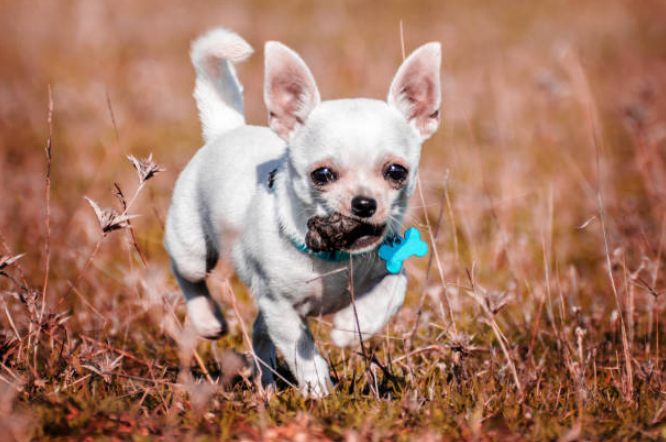
One could better refer to their nature as scavengers, which means that dogs will look for food, including the ones that people would not consider tasty. Some poisonous plants include Supreme-taped trees, azaleas, rhododendrons, ivy, oleander & foxglove. Cat feces contain remains of the high-protest diet that are appealing to dogs. This particular behavior is so marked by the foraging habits of these breeds’ ancestors, such as the beagle and the Labrador retriever.
Solution: It is best to keep the litter box out of reach and allow for free feeding and a supply of wholesome, high-protein chokers.
In some cases, the act of a dog eating cat poop may also be considered a sign of inadequate diet. If your dog’s diet does not contain some of the essential vitamins, minerals, or digestive enzymes, your dog may start looking for supplements elsewhere; unfortunately, cat fecal matter is the next best thing to it!
Some of the usual nutritional deficits that trigger coprophagia are:
● Lack of catalysts: Lack of digestive enzymes, which, for instance, can result in dogs craving feces since these substances are rich in partially digested nutrients.
● Diet Low in Fiber: The condition can also be attributed to low-fiber diets, and individuals may also tend to eat their feces.
● Coprophagy: It has been discovered that dogs that lack thiamine, which belongs to the vitamin B group, eat feces.
Consultation with a veterinarian can help one feed the dog a balanced diet that includes fibers, probiotics, and high-quality proteins. It is also important to present food in an attractive manner such as using the WOpet Castle smart pet feeder.
Various ailments may predispose a dog to act in such a manner and become a habitual cat poop eater. Some of the most common include:
● Exocrine Pancreatic Insufficiency (EPI): is a state in which the pancreas does not produce adequate amounts of digestive enzymes to aid the digestive process in the small intestines.
● Hyperphagia: Diagnosable diseases such as diabetes or Thyroid issues are also known to enhance hunger and the food search.
● Intestinal Parasites: Worm infestations cause malnutrition, and the affected individual tends to seek matter.
Solution: If your dog has not been trained to this habit, you should contact your vet to determine whether an underlying health issue causes its behavior.
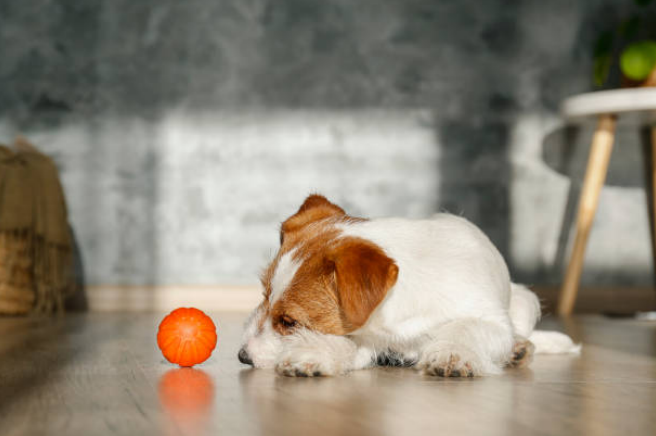
Dogs with low energy levels or pathetic stress, such as separation distress syndrome, are likely to consume feces. Otherwise, if a cat is left alone for quite a long time with no toys or other stimulating activities, it will turn to the litter box.
Solution: Key recommendations include engaging the dog in more physical exercise, offering him or her interactively selected toys at home, and possibly crate training, especially if the dog suffers from separation anxiety.
If your dog learns that cat poop is one of the things that you pick, they may develop even more curiosity. If there is anything that belongs to a category that is restricted for the dogs to access, then that is what they want.
Solution: The problem can be solved by arresting the scolding process and using positive training methods.
Social learning is common in dog behavior; previous generations of dogs teach their young ones how to behave. In fact, a puppy observing another dog eating cat feces will mimic the behavior as well, so these accounts are plausible. Therefore, aggressive training during the early stages of the program is crucial to the success of the strategy.
Solution: Desensitization and control of coprophagy should begin in the initial development stages and involve deterrents.
Beyond the “ick” factor, eating cat poop can have serious health consequences for dogs:
The harmful parasites Toxoplasma gondii, Roundworms, and Hookworms exist in cat feces.
● Toxoplasma gondii is a parasitic pathogen that benefits from neurological issues in dogs.
● Roundworms and Hookworms infect the intestines and lead to weight loss while causing both diarrhea and lethargy.
● The infections from Salmonella and E. coli bacteria will cause vomiting along with diarrhea that can lead to dehydration in dogs.
● The bacteria Clostridium perfringens acts as a gastrointestinal distress initiator within dogs.
Several cat litter contain dangerous chemical substances. Nighttime consumption of clumping litters based on silica or clay may result in hazardous intestinal blockages.
The alternative would be to choose between natural or toxic-free cat litter.

● Choose a Litter Hood that Dogs Cannot Enter: Although some models have a front opening, most do not allow the dog to dig into the waste.
● Litter Boxes should be placed in appropriate areas that only the cats can access, for instance, using a baby gate to cover the closet.
● Use a motion-activated deterrent; it has a harmless air burst that deters your dog from approaching.
● Feed a nutrient-dense, enzyme-rich diet to eliminate nutritional cravings.
● Add natural deterrents like pineapple or pumpkin, which can make poop taste unappealing.
Step-by-Step Guide:
1. Hold a treat in your fist and say, “Leave it.”
2. Reward your dog when they stop sniffing and back away.
3. Gradually introduce the command near the litter box.
● Scoop waste at least twice a day to reduce temptation.
● Consider a self-cleaning litter box like the Litter-Robot for added convenience.
● Apply some bitter spray around the litter box area.
● Add enzyme-rich foods to your cat’s food—this makes cat poop taste unpleasant to dogs.
● Install a pet gate with a cat door to keep dogs out of litter areas.
● Consider placing the litter box in a separate room with a cat flap entryway.
● Provide enrichment activities like interactive feeders and puzzle toys.
● Use calming aids to reduce stress-related coprophagia.
Routine vet visits help rule out medical conditions driving poop-eating behavior.
Whenever your dog ignores the litter box, offer a treat or praise. Positive reinforcement strengthens desired behavior.
For extreme cases, a Basket Muzzle allows panting and drinking while preventing poop consumption.
I will also be listing more misconceptions people have concerning the reasons behind dog’s habit of eating cat poop and how one may be able to curb it. Here, we must address some of the applied myths:
Self-licking and ingesting fecal matter in dogs is not attributed to hunger but as a result of an illness or boredom.
It has been established that although some dogs begin consuming feces due to hunger, even fed dogs do this habit. They include instinct, she-bears having developed curiosity, or lack of foods rich in vitamins, minerals, amino acids, and proteins.
Fact: I outlined the paradox when I mentioned that even dogs that are domesticated, taken care of with concern by their owners, may eat stool owned by cats. It is a learned behavior, learned instinct, or an index of a health condition but not a training problem.
It must be understood that some owners attempt to punish their cats by placing a small amount of hot sauce or spicy product on the cat's feces; it negatively affects a dog as it interferes with the dog’s digestive system. It may also enhance their desire to eat spicy human foods that could harm their health.
It is a shocking truth, but one cannot think of eating cat feces, and it is not as harmless as one might presume. When dogs consume cat litter, they suffer from various parasitic and bacterial infections, as well as a possible blockage of the intestines. As we have seen, it is a habit, and to avoid such health complications, it is best to take appropriate measures.
Q: Does eating pineapple for my dog eliminate the tendency of poop eating?
A: Yes! Pineapple contains bromelain, which can make a dog's stool unappetizing and unsafe for the pet to eat.
Q: What should I do when my dog eats feces, especially that of the cat?
A: No! On an alarming note, punishment has been known to have consequences regarding the worsening of the situation as well as the occurrence of anxiety. Thus, it is more productive to work on positive reinforcement and redirection principles in this case.
You must be patient, train, and use effective interference to prevent your dog from eating cat feces. Yet there are services you wouldn’t have thought could be solved by WOpet but would make your pet healthier and happier at home. Got questions? For more specific recommendations, contact WOpet Support Center.
Popular Post

What to Feed a Sick Dog With No Appetite? [2025 Guide]
May 16, 2023
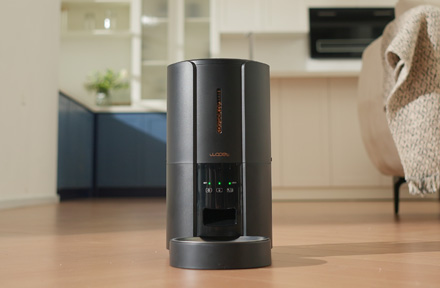
Troubleshooting Common Issues with Automatic Pet Feeders: Tips & Tricks for Pet Owners
Oct 26, 2023

Why Does My Cat Cough After Drinking Water? 8 Potential Reasons
Mar 13, 2023
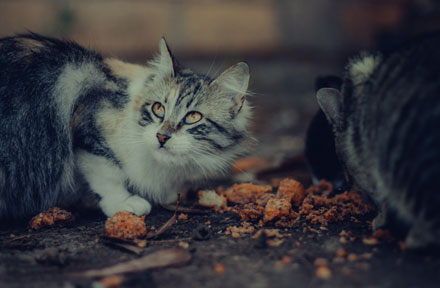
My Cat Only Eats A Little at A Time - What to Do?
Feb 27, 2023
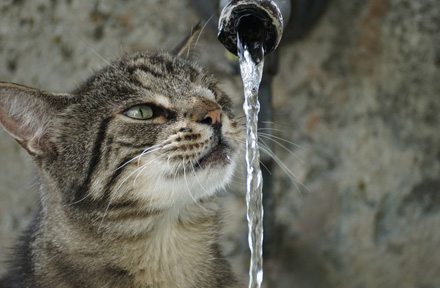
Why is My Cat Throwing up Water? Top 5 Causes Here
Feb 08, 2023
$99.99
$129.99
Copyright © 2025 WOPET. All Rights Reserved.